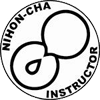Culture
Tea Ceremonies are a core part of Japanese Tea, and have historically taken an important role in both the political and cultural sphere.
Placing Zen ideals at its forefront, the Japanese tea ceremony incorporates 4 main principles: harmony (with other people and with nature), respect (of others), purity (of the mind and the senses) and tranquility (peace of mind and appreciation of nature's abundance). Ceremonies involve the whisking of matcha powder and hot water using a Chasen (tea whisk) to form a frothy tea, which is enjoyed alongside small sweets. The flavours form a harmonious combination with the sweet balancing out the slight bitterness of matcha.
Modern Japanese tea culture
Today, tea ceremonies are a much less common occurrence in everyday life; however the original Zen spirit still remains at the core of Japanese tea culture. Tea is an integral part of Japanese life, with it served to welcome visitors, at social gatherings and consumed during breaks in-between work. In 2013, Japanese people, on average, consumed 150 cups of green tea a year, with Shizuoka (famous for its tea production), ranked highest in annual average consumption at 542 cups.
Tea is also found and a popular option throughout the thousands of convenience stores and vending machines all across Japan and is never far out of reach.

